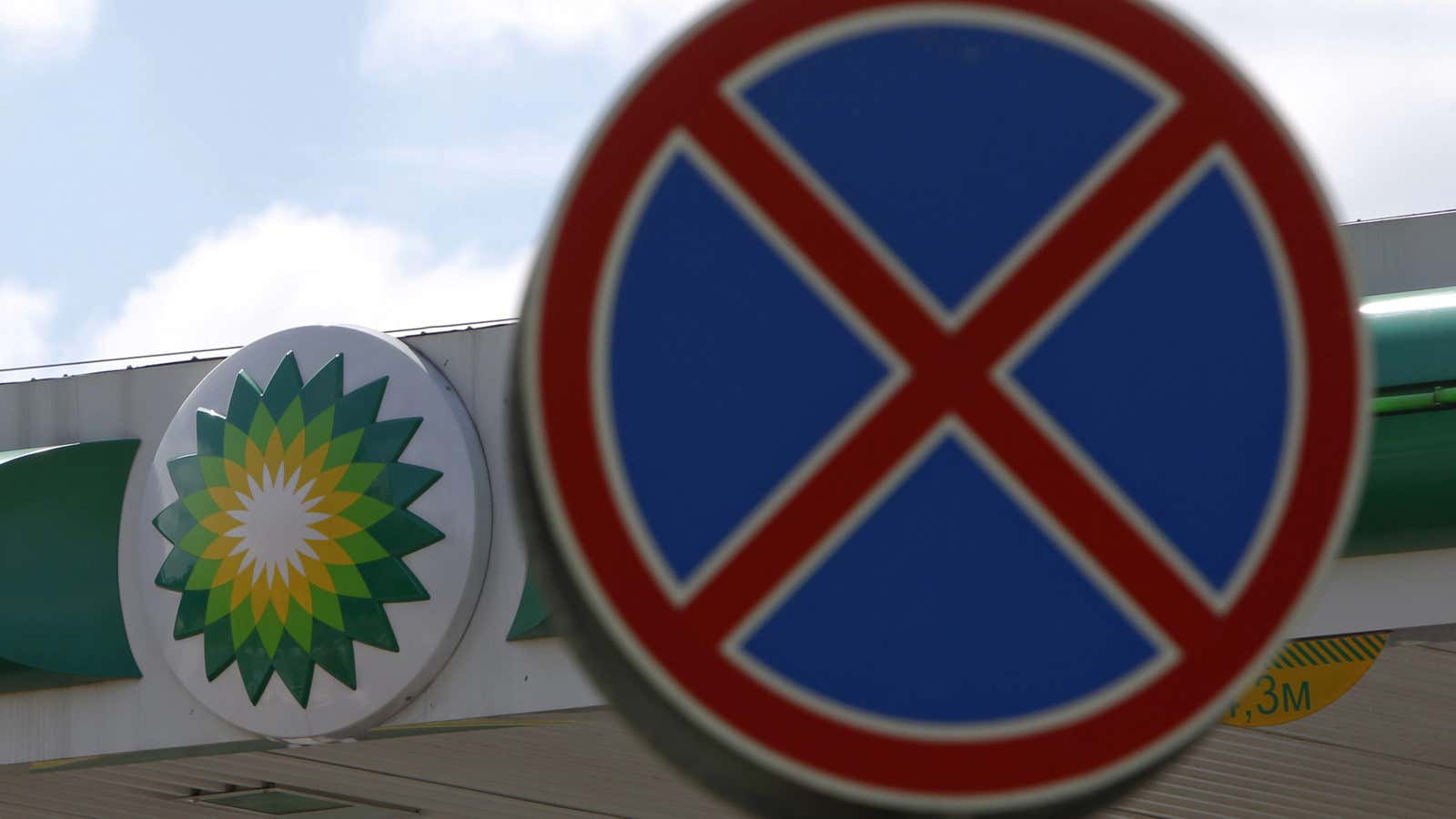Russia’s invasion of Ukraine looks set to be the final episode in BP’s tumultuous relationship marked by bitter power struggles and subterfuge that included poisoned meals for BP’s former CEO.
On Sunday (Feb. 27), BP chairman Helge Lund announced that the London-based oil major would be pulling out of its 19.75% stake in Rosneft, Russia’s state-owned oil enterprise. “Russia’s attack on Ukraine is an act of aggression which is having tragic consequences across the region,” Lund said in the statement. “This military action represents a fundamental change. It has led the BP board to conclude, after a thorough process, that our involvement with Rosneft, a state-owned enterprise, simply cannot continue.”
On the line is as much as $25 billion—the value of the stake as well as accumulated foreign exchange losses.
“We will look for options to divest our stake—starting a commercial process and will provide updates as appropriate,” BP said in a statement. The process of selling the stake will be complicated by the prevailing economic sanctions.
The decision to cut ties with Rosneft follows pressure from the UK government, which has moved aggressively to sanction Russia for its invasion of Ukraine. During a call last Friday (Feb. 25), UK business secretary Kwasi Kwarteng asked BP executives to explain their ties to Russian oil, according to the Guardian.
Over the last several years, oil and gas revenue has been central for Russia to build up a $630 billion war chest to bolster the country against the impact of sanctions.
How BP became Rosneft’s biggest foreign investor
On its website, BP has previously called itself ”one of the biggest foreign investors in Russia.” BP was among the first companies to do business in post-Soviet Russia, entering the country in 1990, shortly before the fall of the Soviet Union.
A few years later, BP invested in an oil firm that would go on to become TNK-BP, a joint venture between BP and a group of oligarchs. In 2006, BP participated in Rosneft’s London IPO, initially acquiring just a 1.25% stake in a company with whom it already had an alliance to run gas stations.
Clashes with some of BP’s Russian partners resulted in deteriorating relationships, some of which were detailed in a January 2014 New Yorker profile of Leonard Blavatnik, one of the owners of the TNK arm of the partnership, and involving Robert Dudley, BP’s former CEO.
According to a US Embassy cable released by WikiLeaks, and recounted in the New Yorker, starting in 2007, during Dudley’s tenure as CEO of TNK-BP in Moscow, he would come home to his apartment with legal summonses scattered on his kitchen table. He feared his office was bugged, and communicated with colleagues using passed notes. After he began feeling ill, Dudley had his blood tested, and poison was detected in this bloodstream. He began to feel better once he stopped eating food provided by his company.
The battles between BP and the oligarchs weren’t always covert. They descended into “sometimes fighting with their bare hands,” Russian president Vladimir Putin was quoted as saying in the New Yorker profile.
In 2013, Dudley returned to Russia after Rosneft acquired TNK-BP, shifting BP’s partnership from the oligarchs to the Russian government. The deal resulted in BP’s 19.75% share of Rosneft (the oligarchs walked away, with a reported $28 billion) as well as two seats on its board, one for Dudley, and another for current BP CEO Bernard Looney. Last year, BP’s dividends from Rosneft equalled about $640 million.
Both resigned their seats with immediate effect on Sunday.
